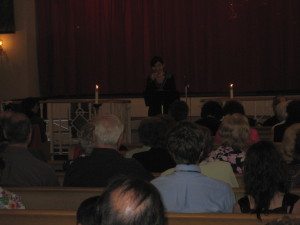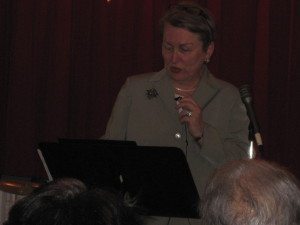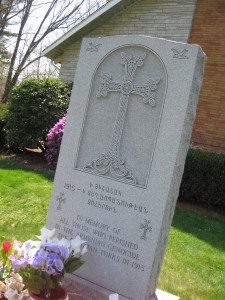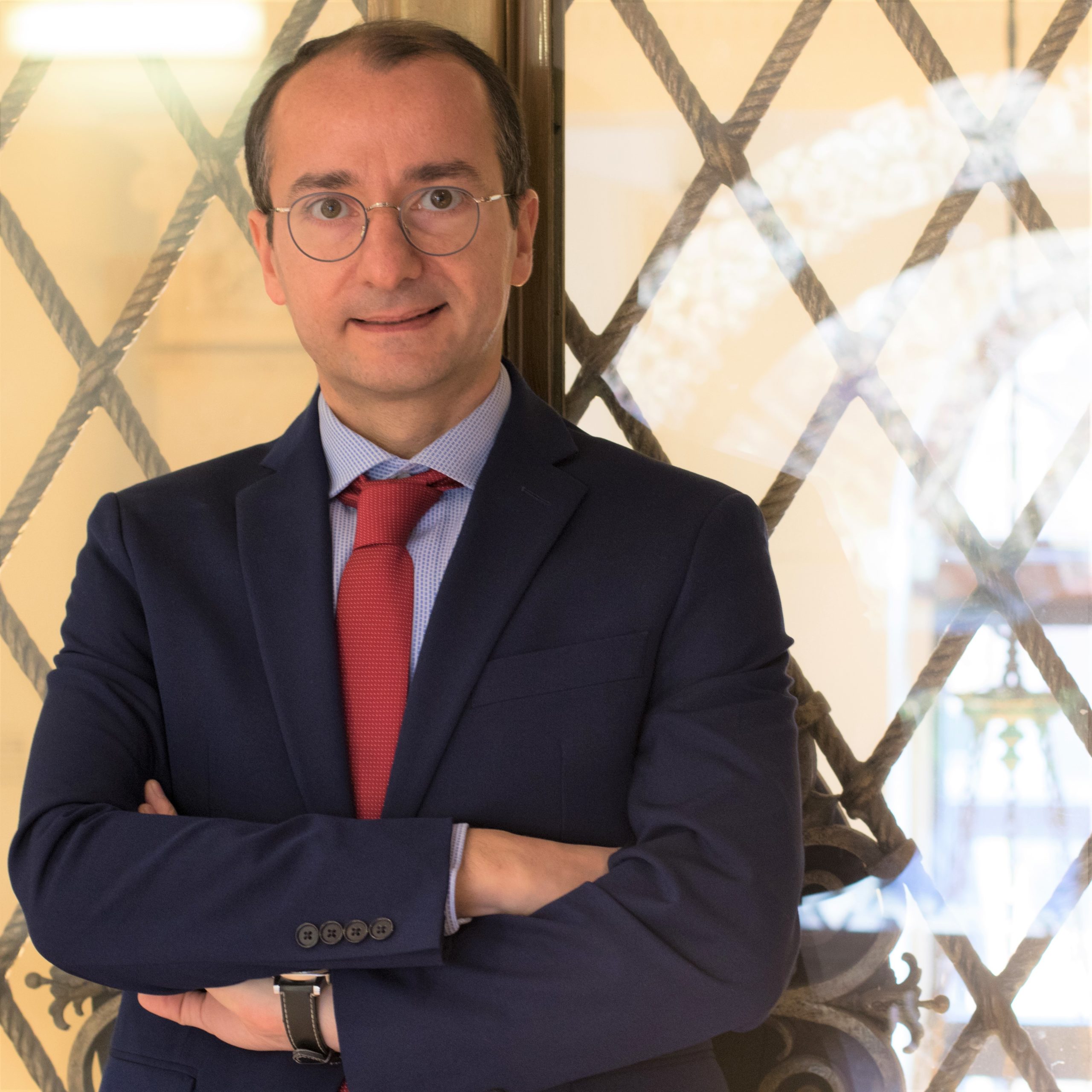WORCESTER, Mass. (A.W.)—On April 26, an Armenian Genocide commemoration was held at the Holy Trinity Armenian Apostolic Church in Worcester, and featured speakers Bilgin Ayata (Johns Hopkins University) and Dr. Dikran Kaligian (Regis College). The event was sponsored by the Armenian Church of the Martyrs, the Armenian National Committee, the Armenian Relief Society, the Armenian Revolutionary Federation, the Armenian Youth Federation, the Holy Trinity Armenian Apostolic Church of Worcester, and the Surp Asdvadzadzin Armenian Apostolic Church of Whitinsville.

Arpi Aprahamian, the mistress of ceremonies, welcomed the audience—which numbered 200—and talked about the importance of commemorating the genocide. She said the number of survivors have dwindled over the years, and acknowledged the presence of the only survivor in the audience, Almas Boghosian. She then introduced Bilgin Ayata.
“A few days ago when I participated at a panel discussion at Bentley College, I found out that among the Armenian community here in Worcester, there are several families who are descendants from Armenians of Chemisgezek of the Dersim region,” said Ayata. “I was born and raised in Germany, but my parents are from Dersim as well, not from Chemisgezek but from Ovajik, a small town in the valley of Dersim. After the genocide in 1915, the cultural diversity of Dersim was extinguished and today, the population consists of mainly Alevi-Kurds and Zazas,” she said.
“In the early years of the republic, the Kurds—who had sided with Ataturk during Turkey’s independence war—experienced their own painful awakening to the old realities in the new republic. Once executioners and accomplices to the Armenian Genocide, the Kurds soon came to realize that the prophecy of an Armenian man during 1915 was right when he stated to a Kurdish tribal leader: ‘We were lunch and you will be dinner,’” Ayata explained.

“An intensified and active Armenian-Kurdish dialogue carries strong potential for an empowering alliance in the road towards justice, acknowledgement, and sustainable peace for the territories in which they once co-existed,” she concluded.
Worcester Mayor Konstantina Lukes spoke next. After talking about the importance of genocide recognition by the current U.S. administration, she read a declaration urging all Worcester residents to commemorate the Armenian Genocide with their Armenian neighbors.
Dr. Dikran Kaligian then traced the history of activism in the Armenian American community back to the late 19th century, and spoke about the role played by the American Committee for the Independence of Armenia (ACIA), which was founded by Vahan Cardashian after World War I. He then talked about the upsurge in Armenian activism and demands for justice after 1965—a date he considered “a turning point.” Before that, he said, Armenian Americans used to commemorate the genocide in churches, but in 1965, they took to the streets, organizing demonstrations across the U.S.

Kaligian also talked about the founding of the Armenian National Committee of America and the work it has done during the past decades. He talked about the resolutions that were passed in the House in the 1970’s and 80’s, the struggles for genocide recognition in UN subcommittees, and, more recently, the hold on ambassador-designate Richard Hoagland’s nomination, the genocide recognition campaigns in Congress, as well as a host of other activities and victories for the Armenian American community. He underscored the fact that without the support of that community, none of this would have been able to happen.
George Aghjayan from the ARF Worcester “Aram” Gomideh made a few comments after Kaligian, urging the community to continue the struggle and, when thinking about the failure of President Barack Obama to recognize the Armenian Genocide, to not forget all the victories that have been achieved.
The Greater Worcester Armenian Chorale then performed several Armenian songs.
Afterwards, Der Aram Stepanian from the Surp Asdvadzadzin Church and Der Khatchadour Boghossian from the Holy Trinity Church of Worcester spoke. The event concluded with a prayer.



Be the first to comment